
The Alan Parsons Project were a British rock band active between 1975 and 1990, whose core membership consisted of producer, audio engineer, musician and composer Alan Parsons and singer, songwriter and pianist Eric Woolfson. They were accompanied by varying session musicians and some relatively consistent session players such as guitarist Ian Bairnson, arranger Andrew Powell, bassist and vocalist David Paton, drummer Stuart Elliott, and vocalists Lenny Zakatek and Chris Rainbow. Parsons and Woolfson shared writing credits on almost all of the Project's songs, with Parsons producing or co-producing all of the band's recordings.

Runrig were a Scottish Celtic rock band formed on the Isle of Skye in 1973. From its inception, the band's line-up included brothers and songwriters Rory MacDonald and Calum MacDonald (percussion). The line-up during most of the 1980s and 1990s also included Donnie Munro (vocals), Malcolm Jones (guitar), Iain Bayne (drums), and Pete Wishart (keyboards). Munro left the band in 1997 to pursue a career in politics and was replaced by Bruce Guthro. Wishart left in 2001, also to pursue a career in politics, and was replaced by Brian Hurren. The band released fourteen studio albums, with a number of their songs sung in Scottish Gaelic.

Donnie Munro is a Scottish musician and the former lead singer of the band Runrig.

The Turn of a Friendly Card is the fifth studio album by the British progressive rock band the Alan Parsons Project, released in 1980 by Arista Records. The title piece, which appears on side 2 of the LP, is a 16-minute suite broken up into five tracks. The Turn of a Friendly Card spawned the hits "Games People Play" and "Time", the latter of which was Eric Woolfson's first lead vocal appearance. An edited version of the title piece combining the opening and ending parts of the suite was also released as a single along with an official video.

Peter Bardens was an English keyboardist and a founding member of the progressive rock group Camel. He played keyboards, sang, and wrote songs with Andrew Latimer. During his career, Bardens worked alongside Rod Stewart, Peter Green, Mick Fleetwood and Van Morrison. He recorded eleven solo albums.
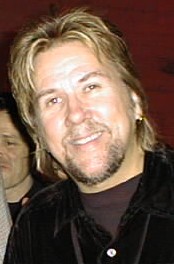
David Robert Pack is an American singer and musician who co-founded the rock band Ambrosia in the 1970s.
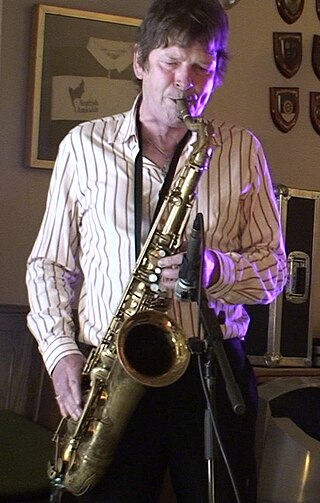
Melvyn Desmond Collins is a British saxophonist, flautist and session musician.

Alan Parsons is an English audio engineer, songwriter, musician and record producer.

Freudiana is a rock opera by Eric Woolfson. It was to be the 11th album by the Alan Parsons Project, but during its development, Woolfson had creative differences with Alan Parsons. The production, released in 1990, utilizes the Project's personnel as well as many guest vocalists. Alan Parsons later began his career as a solo artist with his 1993 album Try Anything Once, which was musically in a direction more or less continued from that of the Project's 1987's Gaudi.
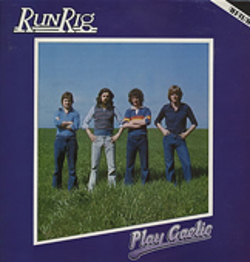
Play Gaelic is the first album by the Scottish Celtic rock band Runrig. It was released in 1978 on LP and tape by Neptune Records. In 1990 it was re-released on CD by Lismor Recordings with different cover art.
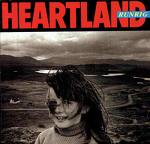
Heartland is the fourth album by Celtic rock band Runrig. It was released in 1985, and was their first output in which English songs exceeded the number of Gaelic ones.

Amazing Things is the eighth studio album by the Scottish Celtic rock band Runrig, released in 1993.
Stuart Elliott is an English drummer, composer and producer. He was the original drummer for Steve Harley and Cockney Rebel and during his time with this band he became a session drummer playing for top artists such as Kate Bush, Al Stewart, The Alan Parsons Project, Roger Daltrey, Paul McCartney, Claudio Baglioni, Lucio Battisti, among others.
Calum MacDonald is a musician who was a founder member of, and percussionist in, the Scottish Celtic rock band Runrig, as well as their primary songwriter with his older brother, Rory MacDonald from 1973 to 2018. Generally, Rory wrote the melodies, and Calum the lyrics.
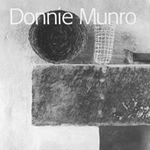
On The West Side is the debut solo album by the Scottish folk rock artist Donnie Munro, former lead singer of the band, Runrig. It was released in 1999.

Duncan Mackay is a British composer, singer, arranger, and keyboard player who has recorded eight solo albums as well as collaborations. He was born in Leeds, Yorkshire, England.
Duncan Chisholm is a Scottish fiddle player and composer. He has released seven solo albums as a solo artist. His studio album, Affric, released in 2012, was longlisted for the Scottish Album of the Year (SAY) Award. In 2022, he released a seventh studio album, titled Black Cuillin. He tours with the Scottish Gaelic singer Julie Fowlis' band. He is also a founder member of the folk rock group Wolfstone. He played fiddle for Runrig.

Haydn Bendall is an English record producer, audio engineer and mixer. He was Chief Engineer at Abbey Road Studios for ten years and was awarded the Audio Pro Industry Excellence Award for Best Studio Engineer in 2009.

"Big Big Deal" is a song by British singer-songwriter Steve Harley, which was released as his debut, non-album solo single in 1974. The song, which was written and produced by Harley, would be his last release before scoring the UK number one hit "Make Me Smile " in 1975. "Big Big Deal" also preceded the formation of the second line-up of Harley's band Cockney Rebel.
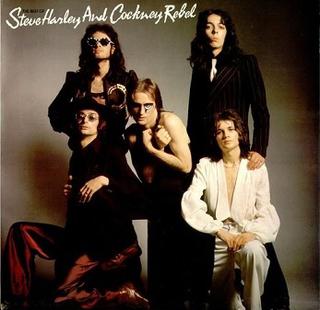
The Best of Steve Harley and Cockney Rebel is a compilation album by Steve Harley & Cockney Rebel, which was released in 1980. It features material from the original line-up of Cockney Rebel, the Steve Harley & Cockney Rebel line-up, and two tracks from Harley's solo career.


















